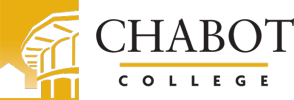
Educational Aide
This program map from the 2024-2025 catalog year represents one possible pathway to complete this program. Your pathway may vary depending on your transfer plans and also previous college credit, including AP Test scores, concurrent enrollment courses and high school articulated courses.
I'm ready to get started. What do I do next?
- Review this program map to get an overview of the required courses
- Meet with a counselor to develop your customized student education plan www.chabotcollege.edu/counseling
- Use DegreeWorks, an online student education planning tool, to track your progress toward graduation www.chabotcollege.edu / admissions / degreeworks
What can I do with this major?
You will be qualified to work in a licensed facility as a preschool teacher and will have the coursework to earn the Associate Teacher permit which is needed to work in Title 5 state-funded preschools and Head Start centers. You will have competencies to work as paraeducators, after-school aides and teacher assistants in an elementary school as well.
Learning and Career Pathway
- Social Sciences, Humanities & Education
Icon Key
Semester 1
ECD
62
Child, Family and Community
ECD
79
Teaching in a Diverse Society
ECD 52 or ECD 56 (Choose one)
Semester 2
ECD
11
Exploring Education
ECD
63
Early Childhood Curriculum
ECD
60
Introduction to the Young Child With Exceptional Needs
Options Course (Choose one course from the list below)
Options Courses
Choose one: